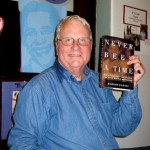Varnum vs Brien: the abridged version of the Iowa Supreme Court Opinion upholding gay marriage
What follows is an abridged version of the Iowa Supreme Court Opinion upholding gay marriage: KATHERINE VARNUM vs. TIMOTHY J. BRIEN, Polk County Recorder. Decision date: April 3, 2009. Who would have thought that the next state to recognize gay rights was going to be Iowa? Right out here in the heartland, neighbor of Missouri, where I live? Many these states in the Midwest have taken pains to amend their laws to forbid gay marriage. I am highly impressed by the Court’s ruling and opinion in the case of Varnum vs. Brien, the Iowa Supreme Court Opinion upholding gay marriage (here’s the full text of the opinion). Here’s Des Moines Register’s brief description of the holding. It is an extraordinary opinion, extremely well-written and well-reasoned. It is extraordinary for both the legal analysis and for the emotional and social insights expressed by the court. This Court really gets what is at stake in this case, and did hide from any of the arguments asserted by the County. It’s amazing what happens when you carefully lay out all of the arguments for the world to see, and I do believe that the Court covered all of the arguments expressed by those who are opposed to gay marriage, even a big argument that the anti-gay-marriage forces didn’t have the courage to raise in the courts (religious objections). Because the Court took the time to carefully lay out all of those anti-gay-marriage arguments, we can all see how empty and paranoid they sound in the abstract. When we see the anti-gay-marriage arguments calmly on paper, without the angry faces and the megaphones, we see them as the specious arguments they truly are. Today, I took the time to read the entire 70-page opinion by the Iowa Supreme Court. It occurred to me, though, that many people (especially non-lawyers) might not want to work their way through the entire opinion. Therefore, I have created this “abridged” version, preserving the significant points, but redacting the citations and technical points. This actual words of the Court’s opinion are truly worth your while. Don’t settle for the simplified news media stories on this decision. This court’s opinion is professional and inspirational. In it’s thoroughness and directness regarding a tumultuous subject, it reminds me of the Pennsylvania decision of Tammy Kitzmiller, et al. v. Dover Area School District, et al., (full decision of the Dover decision here). In this legal decision, the Iowa Supreme Court takes the long view of history, as you can see at page 16, where the Court points out that it prohibited slavery more than 15 years before the U.S. Supreme Court upheld the rights of slave-owners in the Dred Scott case. This discussion is on the mark, given that any legislation curtailing the rights of gays is based on bigotry. The Court has a long analysis ready for those who would argue that homosexuality is a choice, starting around page 41 in the “immutability” section. The also Court slams the concept of "civil union" as a second rate version of marriage (for example, see page 9). What was at stake in this case was Iowa Code section 595.2(1), which ostensibly provides:
“[o]nly a marriage between a male and a female is valid.”
The Court considered a mountain of evidence and reviewed dozens of amicus briefs (briefs from interested individuals and organizations who are not direct parties) before rendering its opinion.
